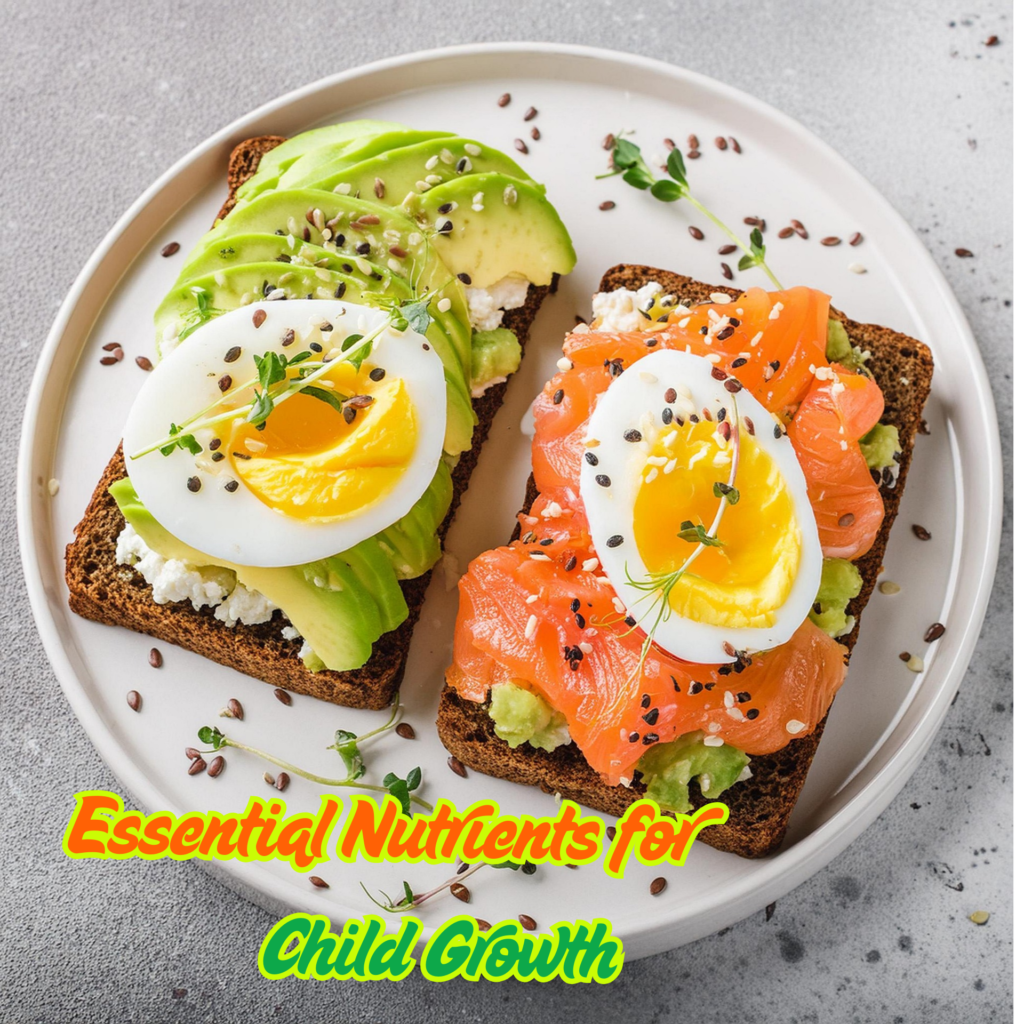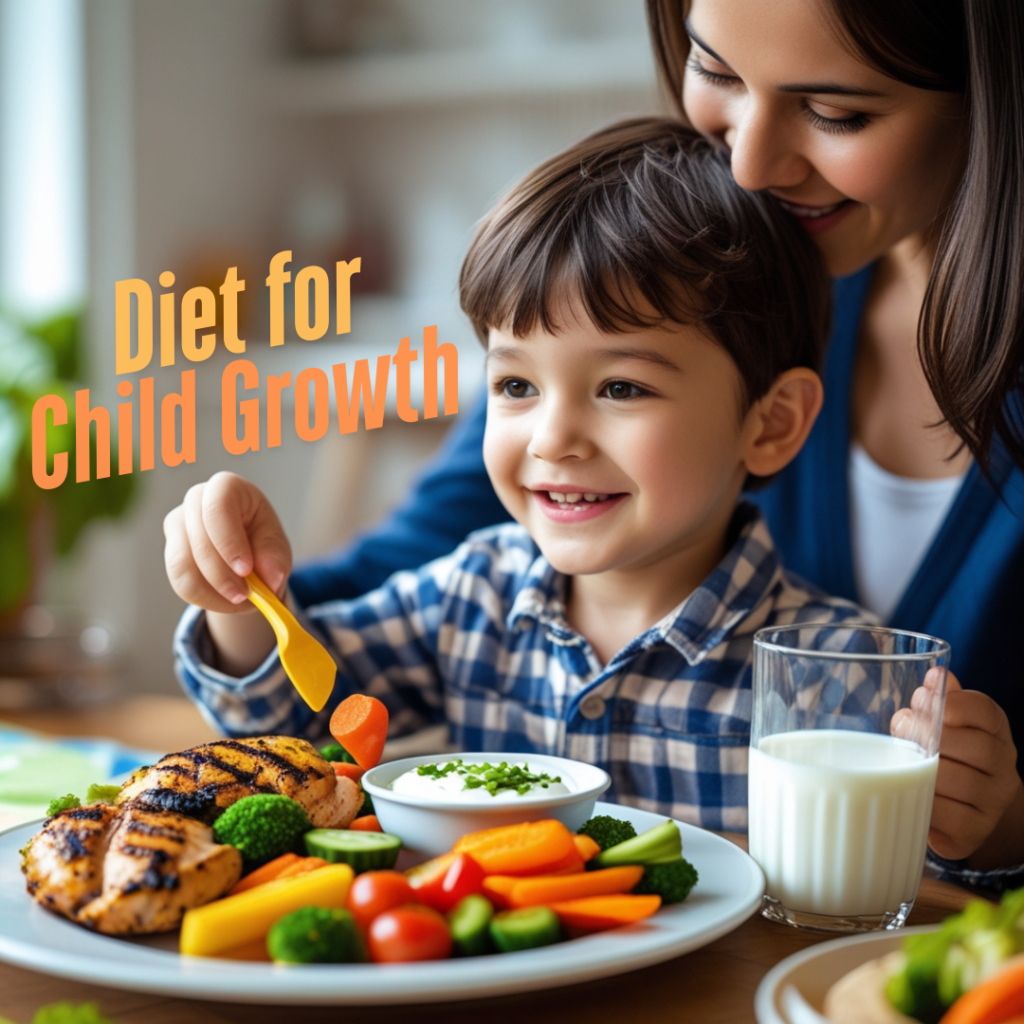I have two children. My younger child, Anwesha, is suffering from severe acute malnutrition (SAM). When she was born, she weighed 4 kilograms, but she was diagnosed with a 2mm atrial septal defect (ASD). She spent more than seven days in the Neonatal Intensive Care Unit (NICU), where she was kept on a nil-by-mouth regimen. As a result, her physical growth was affected.
Understanding Child Growth
Physical development refers to an increase in height, weight, and organ size. During early childhood, particularly between the ages of one and two, growth occurs rapidly. However, children’s eating habits at this stage can be erratic, often causing anxiety for parents. As growth slows, their caloric needs decrease, which may also worry parents. Every parent is concerned about their child’s growth and often consults a physician for guidance.A balanced diet is crucial for a child’s proper growth and development.
Diet for Child Growth: A Complete Guide for Parents
Children undergo rapid growth during their early years and adolescence. Proper nutrition during these stages ensures:
- Healthy bone and muscle development
- Brain development and cognitive function
- Strong immune system
- Adequate energy levels
- Healthy weight maintenance
Without essential nutrients, children are at risk of stunted growth, weakened immunity, poor academic performance, and severe acute malnutrition.

Key Nutrients Required for Child Growth
1.Protein:
Protein is essential for muscle development and tissue repair. It plays a vital role in growth, hormone production, and enzyme function.
Sources: Eggs, chicken, fish, lentils, beans, yogurt, paneer, and nuts
2.Calcium & Vitamin D:
Calcium and vitamin D are vital for strong bones and teeth. Vitamin D, often called the “sunshine vitamin,” is produced by the body when the skin is exposed to sunlight. However, research suggests that many children do not get enough vitamin D naturally. A severe deficiency can lead to rickets, a condition where bones become soft and weak.
Sources: Milk, cheese, yogurt, leafy greens, almonds, and fortified cereals.
3.Iron:
Iron is essential for red blood cell production, oxygen transport, and brain development. Iron deficiency can lead to anemia, causing fatigue and poor concentration.
Recommended Intake:
- 1-3 years old: 7 mg per day
- 4-8 years old: 10 mg per day
Sources: Spinach, beans, lentils, lean meats, dried fruits, and poultry.
4.Healthy Fats:
Healthy fats support brain development and provide sustained energy. Unsaturated fats are particularly beneficial for heart health.
Sources: Avocados, nuts, seeds, olive oil, and fatty fish.
5.Fiber:
Fiber is essential for digestive health and preventing constipation. The recommended fiber intake for children is their age + 5 to 10 grams per day.
Sources: Fruits, vegetables, whole grains, and legumes.
6.Vitamins and Minerals
Vitamins like A, C, and B-complex boost immunity, improve vision, and promote overall growth. Children aged 6 months to 5 years should receive daily vitamin supplements containing vitamins A, C, and D.
Sources: Citrus fruits, carrots, tomatoes, and leafy greens.
Sample Daily Diet Plan for Child Growth
Morning (Pre-Breakfast)
- Warm water with soaked almonds (4-5)
- A small banana or dates
Breakfast
- Egg omelet with whole wheat toast + a glass of milk OR
- Oats with nuts, seeds, and fruits
Mid-Morning Snack
- A handful of nuts + a fruit (apple, orange)
Lunch
- Whole wheat roti + dal + vegetable curry + yogurt OR
- Grilled chicken + quinoa + salad
Evening Snack
- Smoothie with milk, banana, and nuts OR
- Sprouts chaat with lemon
Dinner
- Vegetable soup + grilled fish + multigrain roti OR
- Khichdi with ghee + curd
Before Bed
- A glass of warm milk with turmeric
Tips to Encourage Healthy Eating Habits
- Set a fixed schedule for meals
- Avoid processed and junk foods
- Involve your child in meal planning and preparation
- Offer a variety of foods to prevent monotony
- Praise your child for trying new foods
A balanced diet plays a crucial role in your child’s physical and mental development. By offering a variety of nutrient-rich foods and fostering healthy eating habits, you can ensure your child grows up strong, energetic, and healthy.
If you’re looking for a customized diet plan for your child, consider consulting a nutritionist or dietitian to meet their unique needs.


